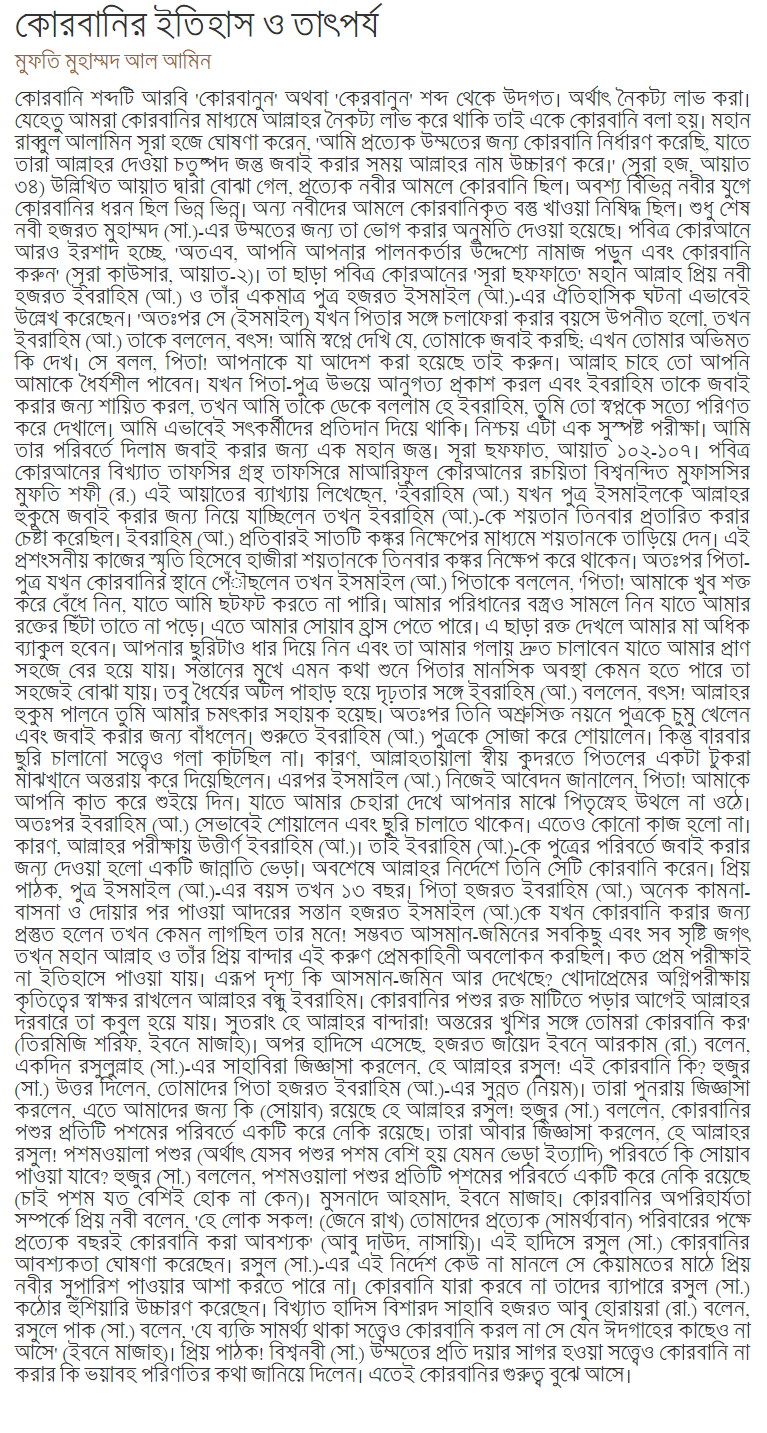Qurbāni (Arabic: قربان) (or أضحية Udhiyyah as referred to in Islamic Law) is the sacrifice of a livestock animal during Eid-ul-Adha. The word is related to the Hebrew qorbān "offering" and Syriac qurbānā "sacrifice", etymologised through the cognate Arabic triliteral as "a way or means of approaching someone" or "nearness". In Shariah Udhiyya would refer to the sacrifice of a specific animal, offered by a specific person, on specific days to seek Allah's pleasure and reward. The word qurban appears thrice in the Quran and in once in Sura Al-Ma'ida in reference to animal sacrifice. In the other two places the Quran speaks of sacrifice in the general sense, referring to any act which may bring one closer to Allah. Other appropriate terms are Dhabihah, Udhiyah and Nahar. A fifth term Zabah refers to normal Islamic slaughter outside the days of Udhiyah.
The history and significance of Qurbani


Sacrifice, as practiced by Holy Prophet Muhammad (Pbuh) is an essential religious rite in memory of the sacrifice performed by Prophet Abraham. God put Abraham to a most difficult trial, the details of which are described in the Quran. ? O my Lord! Grant me (Abraham) a righteous (son)!? So we gave him the good news of a boy ready to suffer and forbear. ? Then, when the son reached the age to work with him, he said: ?O my son I see in a vision that I offer you in sacrifice: Now say what is your view!? (The son) said: ?O My father! Do as you are commanded: You will find me if God so wills, one practicing patience and constancy!? So when they had both submitted their wills (to God), and he had made him prostrate on his face (for sacrifice), We called out to him: ?O Abraham! You have already fulfilled the vision!? Thus indeed do we reward those who do right?? For this was obviously a trial and we ransomed him with a momentous sacrifice: and we left (this blessing) for him among generations (to come) in later times: (37:100-109).




Leave a comment if this post is useful to you.